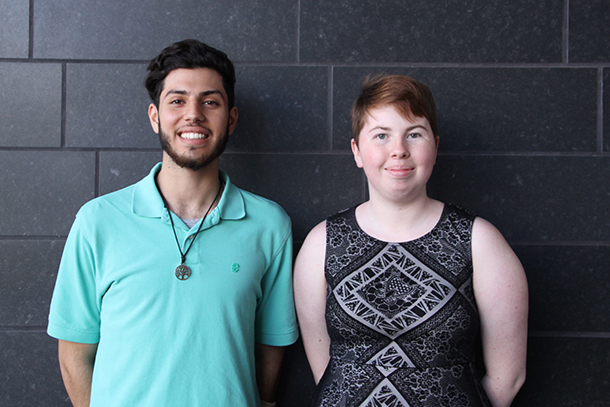For Mohamed El-Farra, medicine does not stop at the disease or the injury.
“I want to create a holistic type of medicine. I want to bring in people’s backgrounds and see the people within it, rather than keeping the science separate,” said El-Farra, who is graduating with a progressive degree in the master’s program in stem cell biology and regenerative medicine at the Keck School of Medicine of USC.
El-Farra wants to understand patients in more than just the context of a diagnosis or a medical chart. His approach to medicine does not turn a blind eye to marginalized populations; instead, he places them at the center of his work.
After leaving two years early from St. Francis High School in La Cañada, El-Farra pursued a bachelor’s degree in health promotion and disease prevention at USC, explaining, “I didn’t want to be a standard biology major. I wanted to experience science where it wasn’t just about cells, and more about interacting with people.”
He and his sister established SALMA<3 (Save a Life, Move a Heart), a student-initiated humanitarian organization that works to spread awareness of homelessness while attempting to break the cycle through various charity events. The branch of SALMA<3 that he started at USC focuses on opening dialogues about the health and safety of vulnerable individuals.
However, his work has not stopped there: his current research focuses on preventive medicine as it relates to drug users on Skid Row and he is conducting a series of interviews and interventions to make a personal difference in their lives. When talking about his work, El-Farra brings up a multitude of questions: “Can counseling one-on-one change drug use? Can we get them to stop? Can we talk to vulnerable populations before drug use?”
El-Farra plans to forge ahead with new projects aimed at assisting marginalized individuals. He is already looking toward medical school with his sights set on becoming a surgeon.
Embodying the Hippocratic oath, “that warmth, sympathy and understanding may outweigh the surgeon’s knife or the chemist’s drug,” he will continue working with disadvantaged populations, trying to make a direct and personal difference through progressive dialogue and science.
— Anna Konecny


